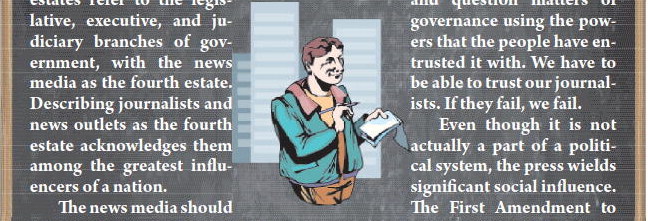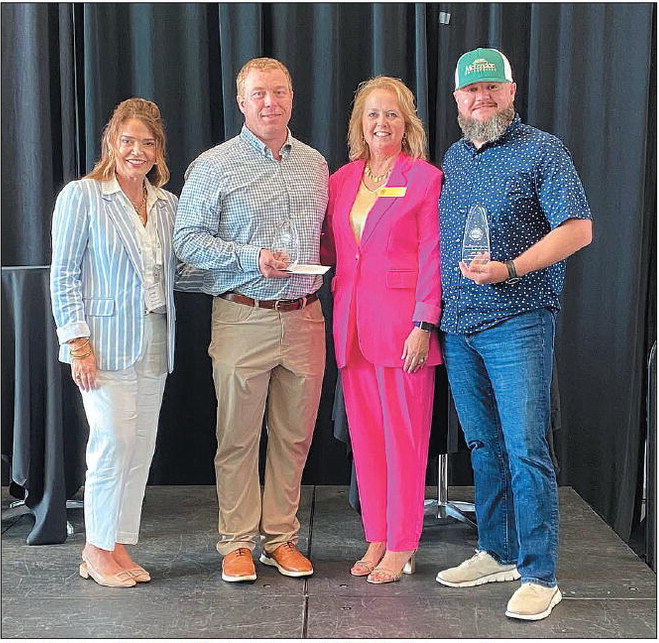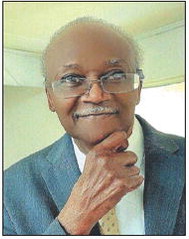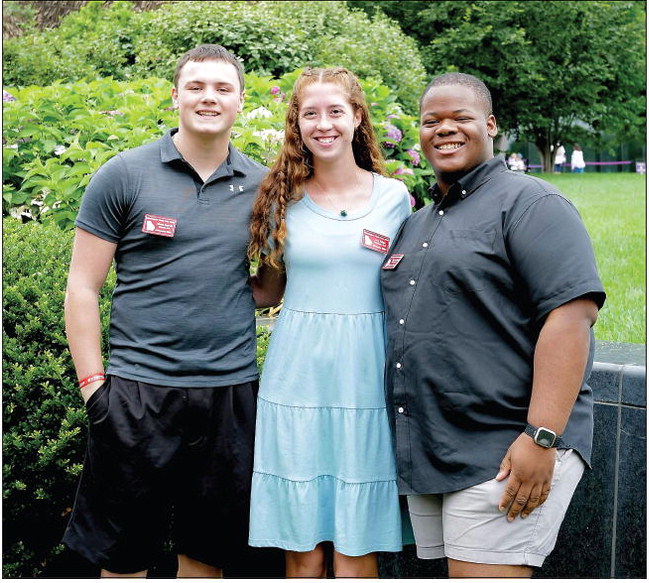Teachable Moment
the Teachable Moment
Why are the media called the 4th estate?
In 1787 Edmund Burke, a Member of the British Parliament, used the term “fourth estate” when he said that there were three estates of the realm: the clergy, the nobility, and the commoners; but the reporters’ gallery was a fourth estate more important in influence than the others.
In the United States and many European countries today, the three estates refer to the legislative, executive, and judiciary branches of government, with the news media as the fourth estate. Describing journalists and news outlets as the fourth estate acknowledges them among the greatest influencers of a nation.
The news media should inform the public of a nation’s activities without bias and with neutral, objective and critical gathering of news to serve the Truth. The Truth requires more than facts; it requires journalists to have the ability to connect the dots, to discern patterns, and to aggregate and summarize them into statements of cause and effect without bias.
The press provides a vital role in discerning fact from fiction and reporting from a neutral, unbiased perspective. We rely on the press to record, investigate, interpret and publish the facts truthfully. It should act as a counterbalance to report, verify and question matters of governance using the powers that the people have entrusted it with. We have to be able to trust our journalists. If they fail, we fail. Even though it is not actually a part of a political system, the press wields significant social influence. The First Amendment to our Constitution “frees” the press from government control or oversight. But that freedom carries with it a responsibility to be the people’s watchdog, which is important to a functioning democracy.
b









